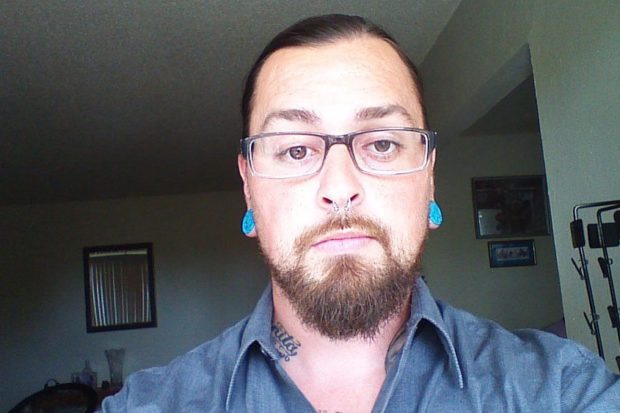

By Ernesto Saavedra
In Jack D. Forbes’ book Columbus and Other Cannibals, he talks of a horrible, contagious disease widely undetected. “For several thousands of years human beings have suffered from a plague, a disease worse than leprosy, a sickness worse than malaria, a malady much more terrible than smallpox…this wétiko (cannibal) psychosis, is the greatest epidemic sickness known to man.”
A Cree term, wétiko refers to a person or spirit that terrorizes and exploits other creatures. Thus, the wétiko psychosis is the mental illness of exploitation for one’s own profit and gain at the expense of others. The physical manifestation of this wétiko psychosis is referred to by Forbes as cannibalism. The consumption of one’s life by another, in a symbolic sense. All those who practice this are referred to as cannibals.
The wétiko psychosis is said to have been brought over by Europeans to the “Western world” in October 1492. Some say this guy named Christopher Columbus, cannibal, was the main proprietor and perpetuator of this disease we now reap the “benefits” from.
Under the flag of “democracy,” “civilization” and “progress,” the wétiko psychosis has infiltrated our very existence. Its by-products can be found in the food we eat, the air we breathe, religious institutions and the so-called “democratic” processes we participate in every two and four years. Like sheep, we are systematically herded and molded to act a certain way and go a certain direction. To catch a ride toward freedom one needs a permission slip.
The cannibals of today’s day and age don’t wear heavy metallic armor or carry around swords. Most wear designer suits and bright white smiles, carrying around suitcases, credit cards and cell phones, their body guards carry guns. Instead of horses, they ride around in vehicles named after horses. Some might even look like you and come from the same background. Underneath it all, the same disease exists.
Like Columbus, they’ll tell you whatever you want to hear. Sure, none are outright chasing you down, tying you up and killing you; imposing fear and conformity, it’s just not fashionable. However, I would argue, the same is still happening, in a not so subtle way.
Corporations have finally caught on to and bought the green movement and have begun selling it to us in the form of the Prius and recycled toilet paper. Ironically, driving this machine is that “green” piece of paper.
We are told to vote because it is our duty to do so as “Americans.” Some even go as far as to say that if we don’t vote we have no reason to complain. I’ve often times wrestled with this logic given the limited choices and rare opportunities we have to participate in this very system. What if you’re undocumented or choose to participate politically in another way?
Police serve and protect property and profits over people. Being “saved” is synonymous with converting to a religious institution foreign to your own indigenous knowledge and practices. For some people and at some places, before food and shelter, you have to accept Jesus Christ as your savior. The school system is bringing up a generation of robots. Think like “them” and stray away from thinking for yourself. Despite all this, like the saying goes, “there is light at the end of the tunnel.”
Forbes’ perspective and that of many Native cultures here and around the world is to live with the world and the universe, not in it. Realizing that the world is not ours but that we come from the world we will better understand our purpose and path(s). I interpret this as educating our thinking. Being critical and engaged in the world around us. This may vary from person to person, and in no way shape or form am I downgrading the great work being done out there within and outside of the system, I just ask that we take a step back and reevaluate it and go from there.
Wétiko psychosis built these structures that oppress us, and it is up to us to bring it down by any and all means.
